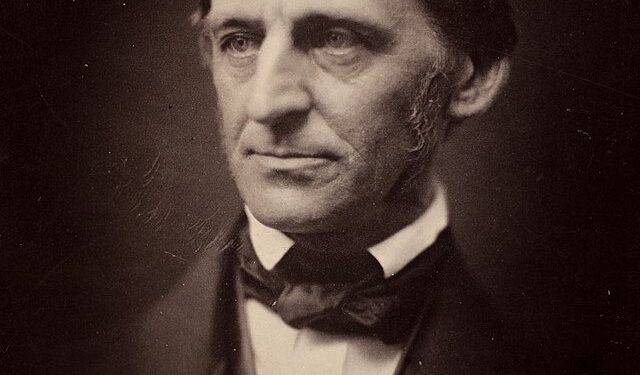Concord Hymn by Ralph Waldo Summary
“Concord Hymn” is a poem written by Ralph Waldo Emerson, which he composed for the dedication of the Obelisk, a monument commemorating the Battle of Concord during the American Revolutionary War. On August 1, 1837, the poem was read aloud for the first time when Concord, Massachusetts’ memorial was finished. This hymn, which honors the spirit of the American Revolution as well as the concepts of liberty and independence, is noteworthy for its transcendentalist and patriotic themes.
Concord Hymn Summary
Section 1: The Revolutionary Scene: The first stanza vividly describes the scene at the North Bridge during the Battle of Concord. Emerson uses evocative language to portray the embattled landscape. The “embattled farmers” are introduced, emphasizing the ordinary citizens who took up arms against the British, marking the beginning of the American Revolution. The poet praises the “shot heard ’round the world,” signifying the historic significance of the conflict that reverberated globally.
Section 2: Nature’s Reverence: The second stanza shifts to a more reflective tone, emphasizing the natural surroundings of Concord. Emerson personifies nature, suggesting that the “embattled farmers” were inspired and encouraged by the spirit of nature itself. TIt is believed that the “spirit” that “rolls the stars” and “freely pours into the sun” is a force that supports the American colonists’ patriotic aspirations. Transcendentalist beliefs are reflected in this relationship between the human spirit and nature.

Section 3: The Symbolic Act of Dedication: The poem then turns to the dedication ceremony of the Battle Monument, where the hymn is sung. Emerson emphasizes the symbolic importance of the act of dedication. The “Spirit” of the revolution is invoked, and the monument is consecrated with the singing of the hymn. This act is not just a dedication of a physical structure but a spiritual consecration, linking the monument with the higher ideals of liberty and independence.
Also Read-
- Crossing the Swamp Summary by Mary Oliver
- As I Walked Out One Evening Summary by W. H. Auden
- Bells for John Whiteside’s Daughter by John Crowe Ransom
Section 4: The Immortality of the Spirit: The hymn concludes by emphasizing the immortality of the spirit of those who fought in the Battle of Concord. Their deeds are commemorated in the verses of the hymn, and the memory of their sacrifice lives on. The poem suggests that the spirit of freedom and resistance against oppression is eternal, transcending time and continuing to inspire future generations.
Concord Hymn Themes in “Concord Hymn”:
- Nature and Transcendentalism: Emerson, a leading figure in the transcendentalist movement, emphasizes the connection between nature and the divine in “Concord Hymn.” The poem begins with the famous line, “By the rude bridge that arched the flood,” invoking a rustic and natural setting. This connection between nature and spirituality underscores the transcendentalist belief in the inherent goodness of both humanity and the natural world.
- Spirit of the Revolution: The poem celebrates the American Revolutionary War and the spirit of resistance against oppression. It pays homage to the “embattled farmers” who stood their ground at Concord’s Old North Bridge and fired the “shot heard ’round the world.” This event marked the beginning of the Revolutionary War, and Emerson captures the heroic and transformative nature of that moment.
- National Identity and Unity: Emerson emphasizes the idea of a united and free nation emerging from the struggle for independence. The phrase “Concord, Hymn” itself suggests harmony and unity. The poem portrays the American colonists as a unified force, collectively taking a stand against tyranny. It speaks to the birth of a nation and the establishment of a shared identity among its people.
- Cultural Memory and Commemoration: “Concord Hymn” serves as a commemoration of a specific historical event—the Battle of Concord. By creating a hymn for the dedication of the Obelisk, Emerson ensures that the memory of the brave individuals who fought for liberty will be preserved. The poem becomes a cultural artifact, connecting present and future generations to the ideals of the American Revolution.
















